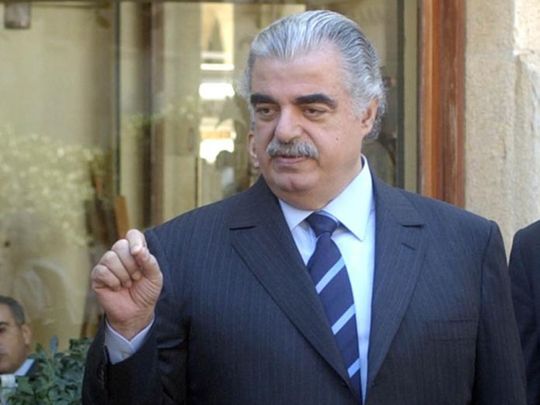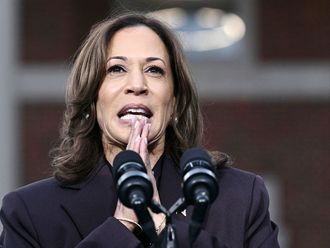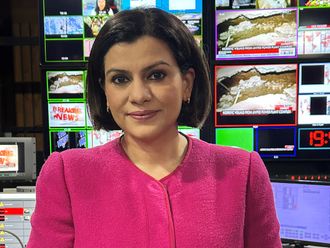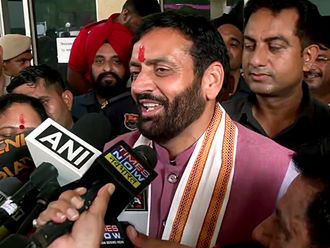
Fifteen years ago, on Valentine’s Day, a colossal bomb went off in downtown Beirut.
The explosion set in motion a chain of events that changed the trajectory of Lebanon’s history. The reverberations of the blast are being felt even today across the Middle East.
On February 14, 2005, the convoy carrying then prime minister Rafik Hariri, who was also known as Mr Lebanon, was blown to smithereens, killing 23 people, including the premier.
The explosion left a huge crater in the middle of Beirut.
The criminal attack on Hariri has become a point of reference in modern Lebanese history. When people talk about recent history, there is a Hariri era, and a post-assassination era.
On Friday, many ordinary Lebanese gathered on the streets surrounding the home of Rafik’s son — former prime minister Sa’ad Hariri — ahead of commemorations.
Fifteen years on, the impact of Hariri’s brutal killing is still hurting the country, and impeding its growth and development.
Lebanon has been gripped by anti-corruption and antigovernment protests since October 17, which show no signs of abating.
Rafik Hariri managed to establish a balance in Lebanon’s relations with the Arab world and the international community. That balance was blown into the wind with Hariri’s assassination, and Lebanon continued to drift into the Iranian axis.
The current political dispensation in Lebanon finds itself totally unable to deal with the situation.
The government is in thrall of Hezbollah, the militant group that is Iran’s proxy in Lebanon, and has a vice-like grip on the country.
In 2005, Lebanon was on the path to reconstruction.
Rafik Hariri managed to establish a balance in Lebanon’s relations with the Arab world and the international community. That balance was blown into the wind with Hariri’s assassination, and Lebanon continued to drift into the Iranian axis.
The result is that today the country is almost a client state of Iran, due to Hezbollah’s control over all organs of state. And due to this, it faces international isolation.
The country’s relations with its Arab neighbours and Western powers have deteriorated drastically. Hezbollah is seen as a terrorist organisation by the Gulf states, Washington and key European countries. This has a major financial and political impact for Lebanon, as it attempts to solve its economic problems.
On January 21, Lebanon’s political elite agreed to form a new government. The new cabinet faces multiple crises that could lead to economic and political collapse.
Public debt stands $86 billion (Dh315 billion), or more than an unbelievable 150 per cent of gross domestic product. The new cabinet, as expected, has done nothing to end the ire of the protesters, who continue to come out in droves to register their disgust with the existing system.
The country desperately needs to get back on the path of stability and put actions over words in reforms.







